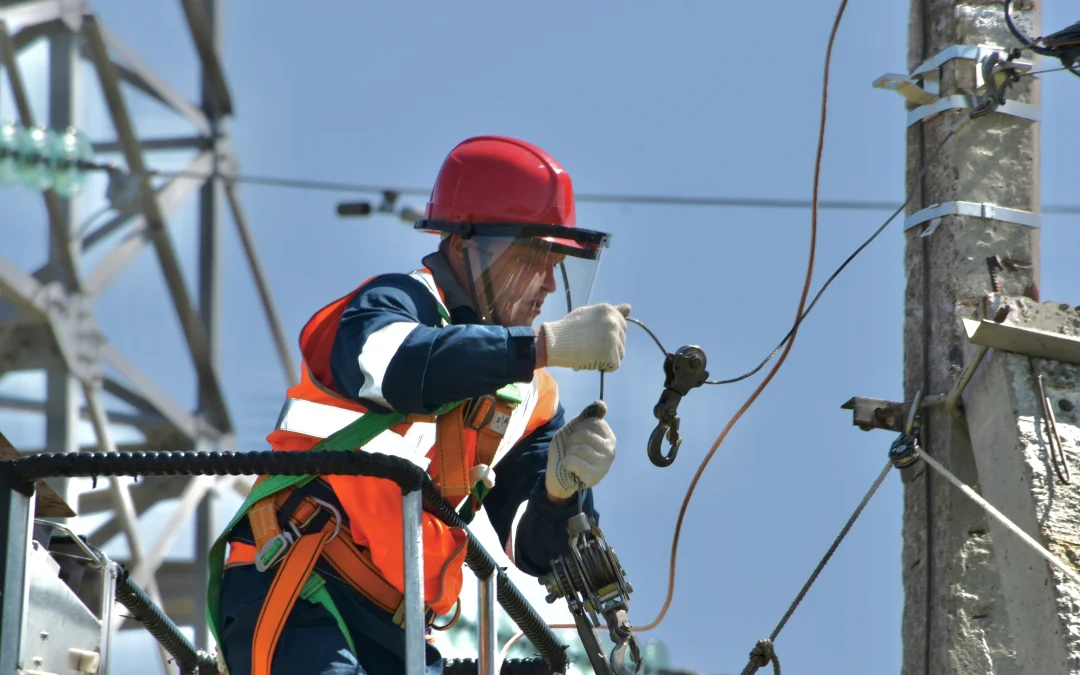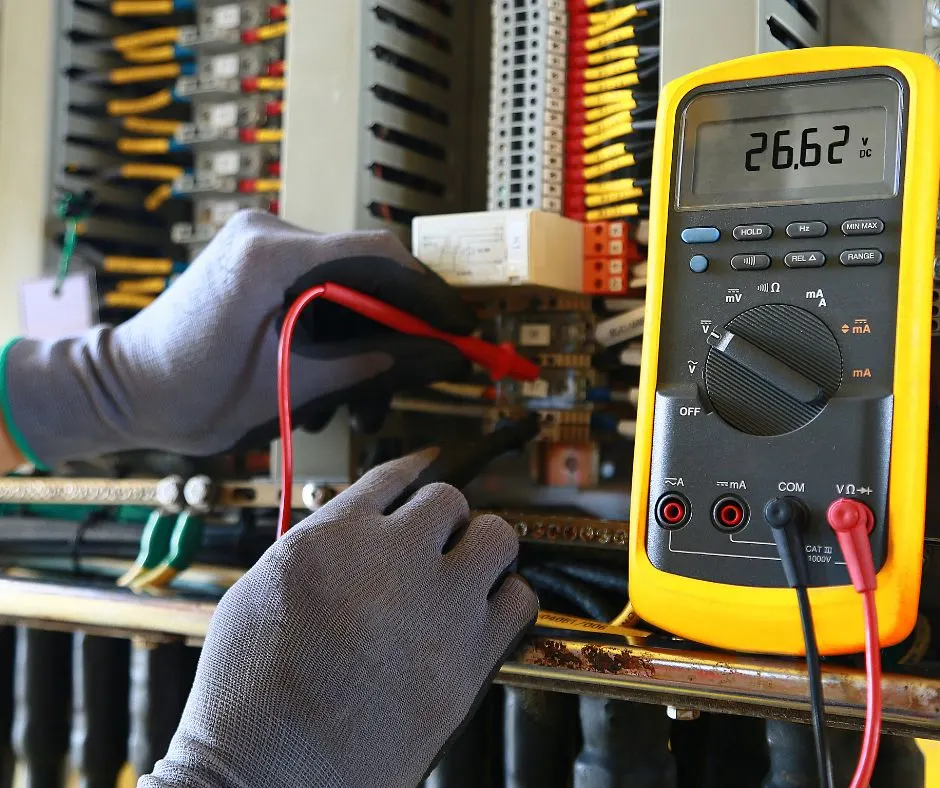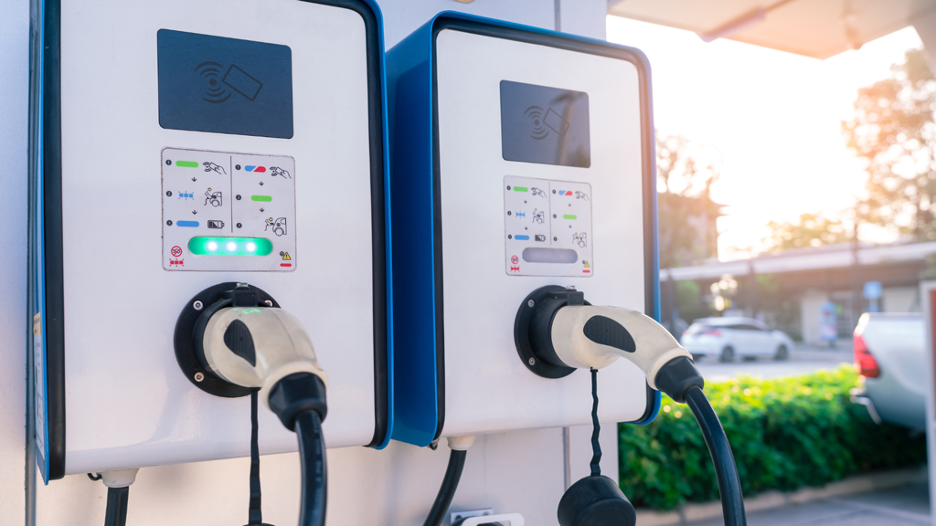Facility managers and operations leaders often face two pressing concerns: ensuring electrical safety and reducing energy costs. It’s common to hear terms like power system study and energy audit thrown around in these conversations. While they may sound similar, they serve very different purposes.
In this blog, we’ll help you understand what each one involves, how they differ, and when your site might benefit from one or both. If you oversee a commercial building, manufacturing site, or industrial site—especially here in Georgia—this guide will help you make more informed decisions for safety, compliance, and cost savings.
Understanding the Core Functions
Facility decision-makers often know they need to evaluate their electrical systems, but it’s not always obvious which type of assessment is right for the situation. That’s where understanding the distinction between power system studies and energy audits becomes essential. In this section, we’ll break down what each entails and how they contribute to a safer, more efficient site.
What Is a Power System Study?
A power system study examines the integrity, safety, and functionality of your site’s electrical infrastructure. It’s a technical evaluation of how your electrical system behaves under various operating conditions. These studies are essential for regulatory compliance, system reliability, and safety.
Typical components of a power system study include:
- Short Circuit Study – Identifies how the system handles faults or abnormal current levels.
- Coordination Study – Ensures protective devices trip in the correct sequence to minimize downtime.
- Arc Flash Study – Assesses the risk of arc flash incidents and informs appropriate PPE and labeling.
- Load Flow Analysis – Analyzes power distribution to identify overloads or inefficiencies.
- Harmonic Analysis – Detects power quality issues caused by nonlinear loads like VFDs.
In addition, many power system studies also include:
- Protective Device Evaluation – Ensures relays and breakers are correctly rated and set.
- Grounding Analysis – Confirms that the grounding system provides adequate fault return paths and personnel safety.
- Transient Stability Study – Simulates system behavior during disturbances to predict performance under faulted or switching conditions.
At Shaw Consulting Services, we routinely conduct these studies for clients across the Atlanta region, helping them prevent costly downtime and maintain compliance with standards like NFPA 70E, OSHA, and IEEE.
What Is an Energy Audit?
An energy audit, by contrast, evaluates how energy is being used throughout your site. The focus here is on identifying inefficiencies and finding opportunities to lower utility costs and improve sustainability. These audits are typically classified into three levels:
- Level 1: Walk-through Assessment – A basic evaluation that identifies obvious areas of improvement.
- Level 2: Energy Survey and Analysis – A more detailed assessment that includes utility data analysis, equipment inspection, and cost-benefit evaluation of upgrades.
- Level 3: Investment-Grade Audit – A comprehensive audit that supports capital investment decisions with high accuracy and detailed financial analysis.
Key areas typically covered include:
- Lighting systems
- HVAC operation and scheduling
- Equipment runtime and energy profiles
- Building envelope performance (insulation, windows, etc.)
- Utility billing analysis and consumption trends
- Water heating and compressed air systems
The goal of an energy audit is to recommend practical upgrades, such as switching to LED lighting, optimizing HVAC schedules, upgrading motors, or implementing automation systems. These upgrades can reduce energy waste and save money over time. In Georgia, many of our clients at Shaw Consulting Services also leverage utility rebate programs to help offset upgrade costs.
Power System Studies vs. Energy Audits: Safety vs. Efficiency
The primary difference lies in their objectives:
- A power system study focuses on safety, equipment performance, and regulatory compliance.
- An energy audit centers on cost savings, energy efficiency, and sustainability.
While they both analyze aspects of your site’s electrical setup, they approach the system from different angles. One ensures your system is reliable and safe under different load conditions. The other looks at how your building consumes energy and what improvements can be made.
A power system study is often required for engineering design, system upgrades, or maintenance planning, while an energy audit supports sustainability initiatives, ESG reporting, and financial planning for energy-saving upgrades.
When Should You Choose One (or Both)?
If you are facing issues such as unexplained outages, tripped breakers, or preparing for a system expansion, a power system study is likely the right move. It is also critical when updating your arc flash safety program or pursuing OSHA compliance.
Power system studies are particularly important when:
- Equipment is being added or upgraded
- You’ve had a recent outage or electrical fault
- You’re preparing for a site expansion
- It has been more than five years since your last study
- You need to comply with updated NFPA 70E or IEEE standards
On the other hand, if your energy costs are consistently rising or you’re exploring opportunities for sustainability, an energy audit can provide a clear roadmap for improvement. Energy audits are especially valuable when:
- You want to reduce operating expenses
- Your utility bills have increased without a clear reason
- You plan to apply for energy rebates or incentives
- You’re preparing to meet corporate sustainability goals
- Your building systems are older or haven’t been upgraded in years
In many cases, operations benefit from conducting both. Together, they provide a comprehensive understanding of your site’s safety and efficiency, helping you plan smarter upgrades and reduce long-term risk. At Shaw Consulting Services, we frequently coordinate these assessments to ensure seamless planning and implementation.
A Practical Example
Consider a manufacturing site near Atlanta that recently experienced sporadic shutdowns and rising energy costs. The operations team suspected an issue with electrical reliability but also noticed HVAC systems operating during unoccupied hours.
A power system study conducted by Shaw Consulting Services revealed an improperly configured protection system that left portions of the site exposed to arc flash hazards. Equipment coordination was also lacking, increasing the risk of cascading failures.
Meanwhile, an energy audit uncovered inefficient lighting, outdated HVAC systems, and significant energy waste in process-related equipment. By upgrading lighting fixtures, implementing building automation controls, and improving system scheduling, the site reduced energy use by 18%.
With both studies completed, the site was able to:
- Improve electrical safety and reduce liability
- Extend equipment life by eliminating power quality issues
- Save significantly on utility costs
- Present a clear roadmap for phased capital improvements
This holistic approach ensured the site became both safer and more cost-efficient.
Why Now Is the Right Time to Act
Energy prices are climbing, and safety standards are becoming more rigorous. Facilities can no longer afford to ignore inefficiencies or outdated systems. Whether you’re managing a school, commercial building, or industrial plant, understanding what’s going on behind your walls is critical.
In regions like Georgia, where weather variability can put additional strain on systems, a proactive approach is even more important. Power system studies can help you prepare for increased demand or aging infrastructure, while energy audits provide insight into waste and offer clear ROI.
Choosing the Right Assessment
As you weigh your options between a power system study and an energy audit, it helps to summarize what each brings to the table. Whether you’re planning capital upgrades, pursuing compliance, or simply looking for more efficient operations, understanding their unique value can guide the best path forward.
- Power system studies focus on system health, compliance, and safety.
- Energy audits identify cost-saving opportunities by reducing energy waste.
- While different, both assessments can work together for greater impact.
- Shaw Consulting Services supports operations across Georgia with both solutions.
At Shaw Consulting Services, we help organizations across Atlanta and beyond navigate the key differences between power system studies and energy audits—so they can make decisions that support long-term reliability, compliance, and cost-efficiency. Whether we’re conducting a power system study to improve electrical safety or delivering a detailed energy audit to uncover inefficiencies, our focus is always on giving you the insight to act confidently. With a clear understanding of your energy systems, you’ll be better positioned to strengthen performance, reduce risk, and plan smarter for the future.











